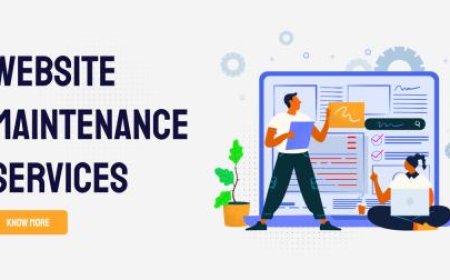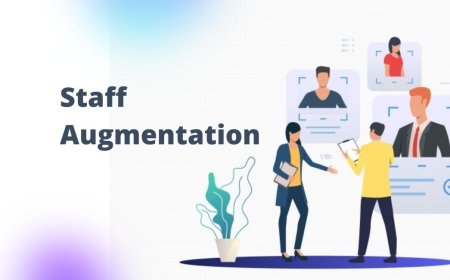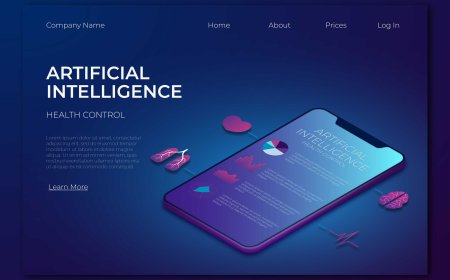The Evolving Role of Microsoft Azure Consultants in 2025 and Beyond
In this article, we explore how the responsibilities, skills, and strategic importance of Microsoft Azure consultants are changing in 2025 and beyond — highlighting the new expectations and opportunities in this dynamic field.

Introduction
In todays fast-paced digital landscape, cloud computing has become the backbone of business innovation and operational agility. Among the leading cloud platforms, Microsoft Azure stands out as a robust, flexible, and secure ecosystem enabling organizations to transform their IT infrastructure and deliver scalable services. As more businesses migrate to the cloud and leverage advanced technologies, the role of the Microsoft Azure consultant is evolving dramatically.
In this article, we explore how the responsibilities, skills, and strategic importance of Microsoft Azure consultants are changing in 2025 and beyond highlighting the new expectations and opportunities in this dynamic field.
1. The Traditional Role of Microsoft Azure Consultants
Traditionally, a Microsoft Azure consultant has been seen primarily as a technical expert who assists organizations in designing, deploying, and managing Azure cloud solutions. Their core responsibilities included:
-
Assessing business needs and recommending Azure services.
-
Planning and executing cloud migration strategies.
-
Implementing Azure infrastructure, networking, and storage.
-
Ensuring cloud security and compliance.
-
Providing ongoing cloud management and optimization.
While these tasks remain relevant, the scope of the role has broadened substantially due to emerging technologies, evolving business priorities, and increased cloud adoption across industries.
2. Cloud Consultancy as a Strategic Business Partner
By 2025, Microsoft Azure consultants are no longer just technology implementers they have become strategic business partners. This shift is driven by organizations realizing that cloud transformation is not just a technical project but a fundamental business change that impacts processes, customer experiences, and revenue models.
A Microsoft Azure consultant today must:
-
Understand the clients business goals deeply to tailor cloud strategies that drive growth.
-
Advise on cloud cost management and optimization aligned with financial targets.
-
Help foster innovation by integrating AI, machine learning, and IoT solutions into the cloud roadmap.
-
Collaborate across departments to ensure cloud adoption supports overall organizational agility.
This transformation means consultants are increasingly involved in decision-making at the executive level, influencing how technology drives competitive advantage.
3. Mastering Advanced Azure Technologies
The rapid evolution of Microsoft Azure services is a double-edged sword for consultants. On one hand, it offers immense opportunities to create value; on the other, it requires continuous learning and upskilling.
By 2025, a Microsoft Azure consultant is expected to be proficient not only in foundational Azure services but also in:
-
Azure AI and Cognitive Services: Enabling organizations to leverage natural language processing, computer vision, and predictive analytics.
-
Azure Kubernetes Service (AKS) and containerization for scalable, cloud-native applications.
-
Azure Synapse Analytics and data lake solutions for enterprise-grade big data processing.
-
Azure Arc to manage hybrid and multi-cloud environments seamlessly.
-
Azure Security Center and Sentinel to maintain comprehensive threat detection and response.
Keeping pace with these technologies and integrating them effectively into client environments is a critical differentiator for top consultants.
4. Emphasis on Security, Compliance, and Governance
Security and regulatory compliance have become paramount in the cloud era. Microsoft Azure consultants play an essential role in helping organizations navigate complex regulatory landscapes such as GDPR, HIPAA, and industry-specific standards.
In 2025 and beyond, a Microsoft Azure consultant is expected to:
-
Implement zero trust architectures tailored to Azure environments.
-
Design robust governance frameworks that balance agility with control.
-
Leverage Azures built-in compliance tools and certifications.
-
Guide organizations through cloud risk assessments and continuous security monitoring.
-
Advise on data sovereignty issues and regional compliance mandates.
This shift means consultants must blend deep technical knowledge with a thorough understanding of legal and compliance requirements.
5. Facilitating Hybrid and Multi-Cloud Strategies
Despite the rise of public cloud adoption, many enterprises still operate hybrid environments combining on-premises infrastructure with cloud resources. Additionally, multi-cloud strategies are increasingly common to avoid vendor lock-in and optimize workloads.
A modern Microsoft Azure consultant must be adept at:
-
Designing hybrid cloud architectures that integrate Azure with existing data centers.
-
Utilizing Azure Arc and Azure Stack to extend cloud services to edge and on-premises locations.
-
Coordinating with other cloud providers to ensure interoperability and data consistency.
-
Providing seamless migration and disaster recovery solutions across clouds.
This expertise makes Azure consultants indispensable to organizations navigating complex IT ecosystems.
6. Automation and DevOps Enablement
Cloud consulting in 2025 is inseparable from automation and DevOps practices. The ability to deliver software and infrastructure changes rapidly and reliably is a competitive necessity.
Microsoft Azure consultants now champion:
-
Infrastructure as Code (IaC) using tools like Azure Resource Manager (ARM) templates and Terraform.
-
Continuous Integration/Continuous Deployment (CI/CD) pipelines with Azure DevOps or GitHub Actions.
-
Automated testing, monitoring, and incident response integrated into cloud operations.
-
Scaling cloud infrastructure automatically based on demand using Azure Automation and Logic Apps.
By embedding DevOps and automation, consultants help organizations accelerate innovation cycles while maintaining stability and control.
7. Enabling Data-Driven Decision Making
Data is the new currency of business, and Azure offers a broad portfolio of analytics and AI services that enable data-driven decision-making. The Microsoft Azure consultants role now encompasses:
-
Architecting data platforms that unify disparate data sources using Azure Data Factory, Azure Synapse, and Cosmos DB.
-
Implementing real-time analytics and business intelligence dashboards.
-
Applying AI models for predictive maintenance, customer insights, and operational efficiencies.
-
Ensuring data quality, governance, and compliance.
This ability to turn raw data into actionable insights positions Azure consultants as pivotal players in digital transformation.
8. Enhancing User Experience and Collaboration
Cloud transformation also impacts end-user experience and workplace collaboration. With the rise of remote work and digital workplaces, Microsoft Azure consultants are helping organizations leverage:
-
Microsoft 365 integration with Azure Active Directory for secure access management.
-
Virtual desktop infrastructure (VDI) and Azure Virtual Desktop for remote workforce enablement.
-
Collaboration platforms powered by Azure AI for smarter communication and workflows.
This broader focus helps organizations improve employee productivity and business continuity.
9. Preparing for the Future: Sustainability and Ethical Cloud Use
Sustainability and ethical use of technology are gaining prominence. Microsoft has committed to becoming carbon negative by 2030, and Azure consultants are integral to helping clients align with these goals.
Future-ready Microsoft Azure consultants will:
-
Advise on green cloud architectures that optimize energy efficiency.
-
Support sustainable development goals (SDGs) through cloud-based innovation.
-
Promote ethical AI use and data privacy best practices.
-
Help clients report on environmental impact using cloud analytics.
This expanded role emphasizes technologys responsibility in global challenges.
10. The Skills and Certifications that Matter in 2025
To thrive in this evolving landscape, Microsoft Azure consultants must continuously upgrade their skills. Key certifications that demonstrate expertise include:
-
Microsoft Certified: Azure Solutions Architect Expert
-
Microsoft Certified: Azure Security Engineer Associate
-
Microsoft Certified: Azure DevOps Engineer Expert
-
Microsoft Certified: Azure AI Engineer Associate
Soft skills such as strategic thinking, communication, and business acumen are equally crucial as technical mastery.
Conclusion
The role of the Microsoft Azure consultant in 2025 and beyond is no longer confined to technical deployments. It has expanded into a strategic partnership that blends deep technical expertise with business insight, security governance, automation, data science, and sustainability. Organizations rely on Azure consultants to navigate increasingly complex cloud landscapes and harness emerging technologies to maintain competitive advantage.
For professionals in this field, embracing continuous learning, developing cross-functional skills, and focusing on business outcomes will define success. As Microsoft Azure continues to evolve, so too will the consultants who guide enterprises on their cloud journey making their role more critical than ever.










































